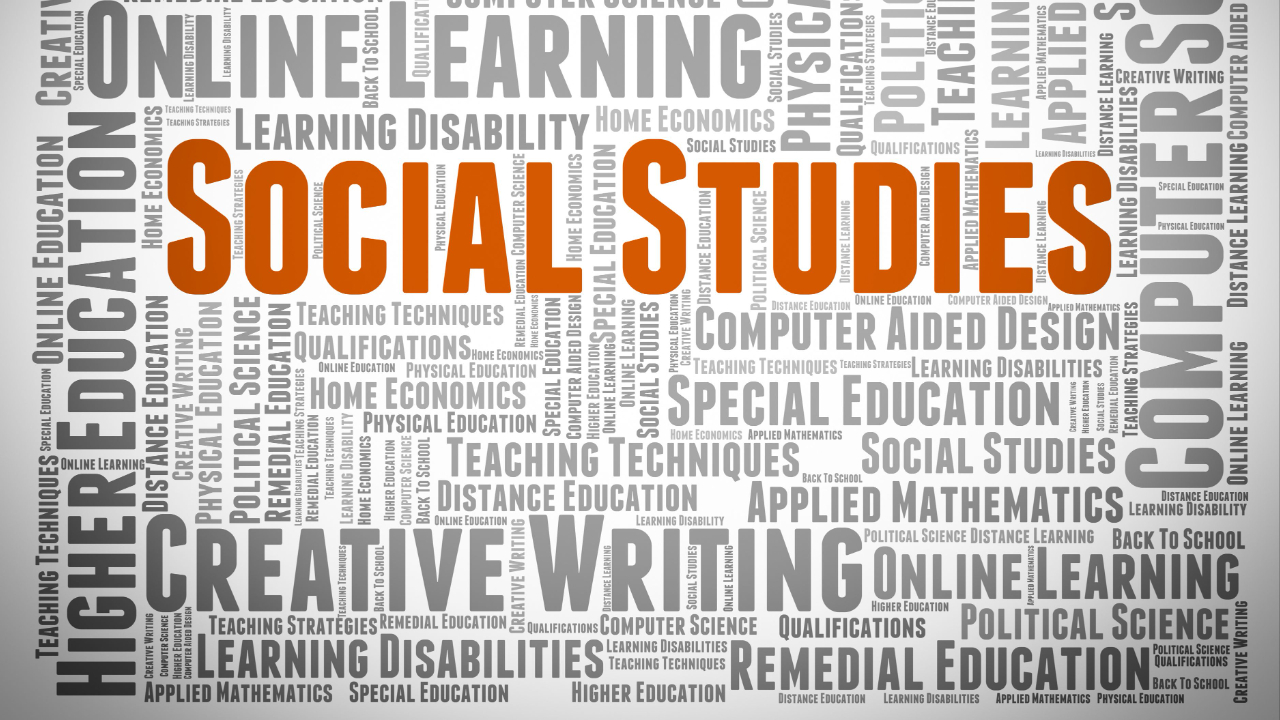The Best Strategies for Teaching Social Studies

Effective strategies and best practices for social studies teachers of any grade level!
As a social studies teacher, you understand the importance of providing your students with a well-rounded education that goes beyond simply memorizing facts and dates. You want to create a learning environment that promotes critical thinking, civic engagement, and multicultural awareness while also addressing the challenges of engaging disinterested students, balancing content coverage and depth, and addressing controversial topics.
That's why this article is for you! If you're teaching social studies, keep reading on to learn about the most effective teaching strategies specifically for the social studies classroom (that you can start using right away)!
From using primary sources and project-based learning activities to incorporating technology and going on field trips, we'll explore the best practices for engaging students and promoting meaningful learning experiences. We'll also provide practical ideas for addressing common challenges, including strategies for differentiated instruction, encouraging respectful dialogue, and prioritizing essential concepts and skills. So, whether you're an experienced social studies teacher or just starting out, this article will give you the tools you need to create a successful and engaging social studies classroom.
Understanding Social Studies
Before we dive into specific strategies, it's essential to understand what social studies is and what makes it unique. Social studies is an interdisciplinary subject that encompasses a wide range of topics, including history, geography, economics, political science, sociology, and anthropology. According to the National Council for the Social Studies (NCSS), social studies is defined as "the integrated study of the social sciences and humanities to promote civic competence." Or, in other words, social studies curriculum helps students in a manner of various ways develop the knowledge, skills, and attitudes necessary to be informed and active citizens in a democratic society.
One of the unique features of social studies is its interdisciplinary nature. Social studies teachers must integrate concepts and skills from various fields to provide their students with a comprehensive understanding of the real world. For example, studying a specific topic such as the Civil Rights Movement requires knowledge of history, sociology, and political science. Furthermore, successful strategies for ANY social studies lesson (irrespective of topic) will encourage and promote critical thinking, inquiry, multicultural awareness, civic engagement, and problem-solving, as students analyze information, evaluate arguments, and make informed decisions.
Effective Strategies for Teaching Social Studies
Now that we have a better understanding of social studies, let's explore some of the best strategies for social studies instruction which include the use and integration of key components, including content areas, teaching tools, specific activities such as group discussions and/or role playing, and instructional strategies.
Social studies teachers can use primary sources, such as historical documents, to teach specific topics and time periods. They can also incorporate technology, such as interactive maps and online simulations, to enhance student engagement and provide a more meaningful way of learning.
Download a FREE WEEK of lesson plans HERE!
Using Primary Sources and Historical Documents
First-hand accounts or original documents (ie., primary sources) created during a particular historical period are an excellent teaching tool and an important component of teaching social studies. Examples of primary sources include letters, diaries, photographs, maps, speeches, and artifacts. Primary sources provide a unique window into the past and can help students develop a more thorough and complete understanding of historical events, social norms, and cultural values.
Social studies teachers can use primary sources to engage students in historical inquiry and analysis. As an example, a teacher could provide students with a copy of the Declaration of Independence and ask them to analyze the document's language and purpose. Another example would be to have your students analyze photographs from the Civil Rights Movement to better understand the struggle for equality and justice.
Incorporating Technology and Multimedia Resources
In today's digital age, students are accustomed to using technology and multimedia resources to learn and communicate. Therefore, I recommend and encourage social studies teachers should use technology to enhance student engagement and understanding. As an example, teachers can use interactive maps to teach geography or use online simulations to teach economics and government.
Multimedia resources, such as YouTube videos and podcasts, can also provide students with different perspectives on historical events and social issues. Teachers may also use documentaries, interviews, and news clips to help students better understand significant historical events or complex issues.
One popular multimedia resource for teaching social studies is TED Talks. TED Talks are short, engaging presentations on a wide range of topics, including history, social issues, and global challenges. Teachers can use TED Talks to introduce new topics, spark classroom discussions, and inspire student inquiry!
In addition to using primary sources and technology, social studies teachers can use a variety of the following techniques to enhance student engagement and promote learning
Project-Based Learning Activities
Project-based learning involves students in long-term, interdisciplinary projects that require them to use multiple skills and knowledge to solve real-world problems or address complex issues. Such activities are an easy way to provide students with opportunities to investigate real-world problems and develop their critical thinking and problem-solving skills. Project-based learning activities are also a great way to promote student research skills and analysis, which can deepen their understanding of social studies concepts.
To best facilitate the learning process of students as they delve into a project, teachers should provide feedback and support throughout the project to ensure that students stay on track and meet their goals!
Cooperative Learning
An effective strategy for promoting student engagement and learning is through the use of cooperative learning in which students work in small groups to complete a specific task or project. This encourages collaboration and communication among group members and provides ample opportunity for students to develop their social and emotional skills.
Role-Playing
Another great way to make social studies lessons more interactive and engaging for students is to have them take on the roles of historical figures or participate in simulations that simulate real-world situations. This not only encourages student engagement and student participation, it also is a great way to help students better understand the context of historical events and encourages them to think critically about the decisions and actions of historical figures!
Encouraging Class Discussions and Debates
These types of activities are also an excellent way to promote and encourage student engagement and participation. Class discussions and debates allow students to express and share their ideas, opinions, and perspectives amongst their peers and provides a great forum in which students may learn from one another. Moreover, class discussions and debates provide opportunities for students to practice active listening, respectful communication, and constructive criticism.
To facilitate effective class discussions and debates, I HIGHLY RECOMMEND that teachers should establish clear guidelines and expectations for participation. Teachers should also encourage students to use evidence and reasoning to support their arguments and challenge their peers respectfully. Moreover, teachers should provide opportunities for all students to participate, even those who may be more reserved or shy.
Incorporating Field Trips and Experiential Learning
Field trips and experiential learning can provide students with hands-on experiences that help bring social studies concepts to life. For example, a trip to a local historical site or museum can help students better understand the significance of events and artifacts. Similarly, a mock trial or mock election can help students better understand the workings of the legal system or government.
To make the most of field trips and experiential learning, teachers should provide straight forward learning objectives and tie the experience back to the curriculum. Teachers should also prepare students for the experience by providing background information and guiding questions. Moreover, teachers should debrief with students after the experience to ensure that they understand the significance of what they learned.
Providing Opportunities for Student Inquiry and Research
Student inquiry and research are effective strategies for promoting independent thinking and problem-solving. By allowing students to pursue their own interests and questions, teachers can help students develop a sense of ownership and responsibility for their learning. Moreover, student inquiry and research can help students develop critical thinking, information literacy, and communication skills.
To facilitate student inquiry and research, teachers can provide opportunities for students to choose their own research topics or design their own projects. Teachers can also provide guidance and support throughout the research process, such as providing access to research databases or helping students develop research questions. Moreover, teachers can provide opportunities for students to share their findings with their peers, such as through presentations or exhibitions.
Addressing Common Challenges in Social Studies Instruction
Despite the many effective strategies available to social studies teachers, they still face common challenges in their classrooms
Balancing Content Coverage and Depth
One common challenge in social studies is balancing content coverage and depth. Social studies teachers must cover a wide range of topics, from ancient civilizations to contemporary issues. However, teachers must also ensure that students have a deep understanding of key concepts and skills.
To address this challenge, teachers should prioritize essential concepts and skills and focus on depth rather than breadth. Teachers should also provide opportunities for students to explore topics in greater depth through research projects or debates. Moreover, teachers should provide opportunities for students to make connections between different concepts and skills to encourage a more holistic understanding of social studies.
Navigating Controversial Topics
In addition to the vast amount of content to cover, another common challenge in social studies is navigating controversial topics. Social studies topics can be sensitive, and discussions can become heated or uncomfortable. Teachers must be prepared to create a safe and respectful classroom environment and facilitate discussions that are both informative and respectful.
To address this challenge, teachers should establish clear guidelines and expectations for respectful communication and engagement. Teachers should also acknowledge that different perspectives and opinions exist and encourage students to listen and learn from one another. Moreover, teachers should provide opportunities for students to engage with different perspectives and interpretations of historical events or social issues.
Engaging Disinterested Students
Finally, social studies teachers may face challenges in engaging disinterested or special needs students. To address this challenge, teachers may provide differentiated instruction and support for struggling learners. This may involve incorporating independent work or language arts into their lessons or using creative ways to present content, such as through the use of multimedia or hands-on activities. Field trips and other experiential learning opportunities can also be a great way to engage students who may struggle in traditional classroom settings.
Overall, there are many effective strategies and practical ideas available to social studies teachers to promote student engagement and enhance learning in their classrooms. By using best practices and following specific techniques, teachers can create engaging and effective social studies lessons that meet the needs of their students and help them to develop the knowledge and skills they need to become informed and responsible citizens.
I hope that this article has helped provide you with a deeper and more concise understanding of effective social studies teaching strategies and how to apply them in your classroom!
Imagine...
-
Spending more time on teaching and less on lesson plans
-
More time on nights and weekends to share with friends and loved ones
-
No longer endlessly searching for amazing lesson plans and resources
Click HERE to learn more about my amazing history curriculum bundles!
I *think* you'll be happy you did 😉
Check out what other teachers are saying about my bundles!



Thanks so much for reading!
-Jillian (a.k.a. the "Lesson Plan Guru")
Related Articles:
- Top 10 Fun Activities for ANY History Class!
- Best Tips for Teaching History Online
- Importance of Hard History Questions to Test Your Students
Receive a FREE Week of Lesson Plans!
Join my mailing list to receive exclusive offers and promotions, the latest tips, and news on product updates!
Don't worry, your information will NEVER be shared.
I hate SPAM too and will NEVER sell it to a third-party. EVER








